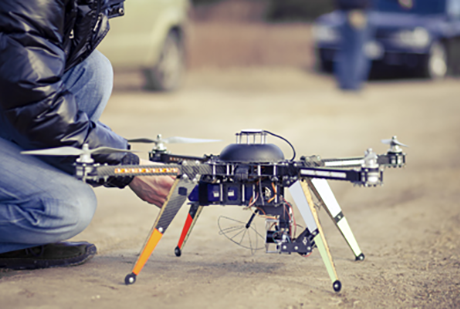Mississippi State University engineers in the Raspet Flight Research Laboratory are working on research that could make unmanned aircraft systems, including drones, operational by the U.S. government and civilian aviation in icy conditions, according to www.forconstructionpros.com.
MSU is leading an icing system development and technology team in what the U.S. Department of Defense hopes will result in lightweight anti-icing systems, leading to certification for unmanned aircraft systems to operate in forecasted icing conditions. The DOD recently awarded $5 million for the research, which also includes the university’s aerospace engineering department and several industry partners.
The team is evaluating the use of a new carbon-nanotube coating, part of an intelligently controlled ice protection system. Flight testing includes 3-D printed ice shapes designed by Raspet to mimic frozen formations affixed to the wings; results from the tests help inform the development of the ice protection system.
NASA-designed sophisticated software models predict the shapes, and test flights are conducted, assessing the shapes’ effects on aerodynamic performance. Icing increases drag, reduces lift and adds weight to aircraft. The newly developed coating for unmanned aircraft systems has extremely high heat conductivity, allowing it to transfer warmth from small heat strips on the wings’ leading edges to counter ice formation.
If successful, the ice protection system also would be of interest in the civilian aviation industry.





